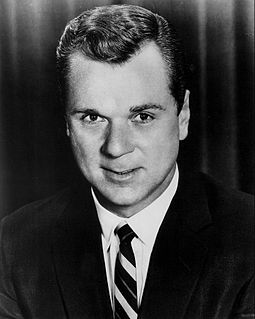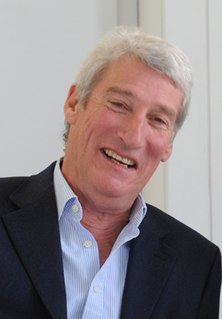A Quote by Scott Storch
I watched my own father, he went bankrupt and had problems with the IRS. He was living beyond his means, and I guess I was doing the same thing and not even realizing it.
Related Quotes
The future mathematician ... should solve problems, choose the problems which are in his line, meditate upon their solution, and invent new problems. By this means, and by all other means, he should endeavor to make his first important discovery: he should discover his likes and dislikes, his taste, his own line.
When the father dies, he writes, the son becomes his own father and his own son. He looks at is son and sees himself in the face of the boy. He imagines what the boy sees when he looks at him and finds himself becoming his own father. Inexplicably, he is moved by this. It is not just the sight of the boy that moves him, not even the thought of standing inside his father, but what he sees in the boy of his own vanished past. It is a nostalgia for his own life that he feels, perhaps, a memory of his own boyhood as a son to his father.
When I was a teenager, my father went bust. He could have declared himself bankrupt, but he was an honourable man and he insisted on paying back all his debts. That almost ruined the family. I was aware that my mother and father couldn't control things anymore. I guess I was afraid that we would end up on the street.
There is talk ... of our constructing Dnieprostroy through our own means. The means needed are great, several hundred millions. Let us not get into the position of the peasant who, after accumulating a nest-egg, instead of repairing his plough and renewing his equipment, buys a gramophone and goes bankrupt.
There must have been moments even that afternoon when Daisy tumbled short of his dreams -- not through her own fault, but because of the colossal vitality of his illusion. It had gone beyond her, beyond everything. He had thrown himself into it with a creative passion, adding to it all the time, decking it out with every bright feather that drifted his way. No amount of fire or freshness can challenge what a man will store up in his ghostly heart.
My father had a real short fuse. He had a tough life - had to support his mother and brother at a very young age when his dad's farm collapsed. You could see his suffering, his terrible suffering, living a life that was disappointing and looking for another one. My father was full of terrifying anger.
Once upon a time, each of us was somebody's kid. Everyone had a father, even if he never provided anything more than his seed. Everyone had a mother, even if she had to leave us on a stranger's doorstep. No matter how we're eventually raised, all of our stories begin the exact same way. They all end the same, too.
People who, as children, were intellectually far beyond their parents and therefore admired by them, but who also therefore had to solve their own problems alone. These people, who give us a feeling of their intellectual strength and will power, also seem to demand that we, too, ought to fight off any feeling of weakness with intellectual means. In their presence one feels one cannot be recognized as a person with problems just as they and their problems were unrecognized by their parents, for whom he always had to be strong.
Ian MacKaye was in London while I was living there. We both decided that even though we had very different lifestyles, we had the same mentality - politically, and in a lot of other different ways. His statement was, "We're going to the same place, except you're taking a taxi, and I'm driving my own car." That's me and Ian MacKaye's relationship. I love him, he's great.
The world of the terminally ill is the world of neither the living nor the dead. I have watched others since I watched my father, and always with a sense of their strangeness. They sit and speak, and are spoken to, and listen, and even smile, but in spirit they have already moved away from us and there is no way we can enter their shadowy no-man’s-land.




































